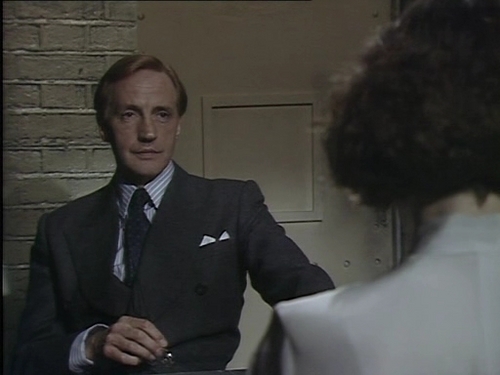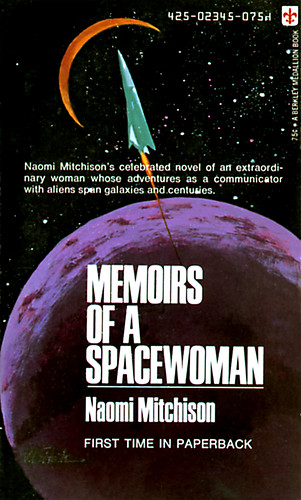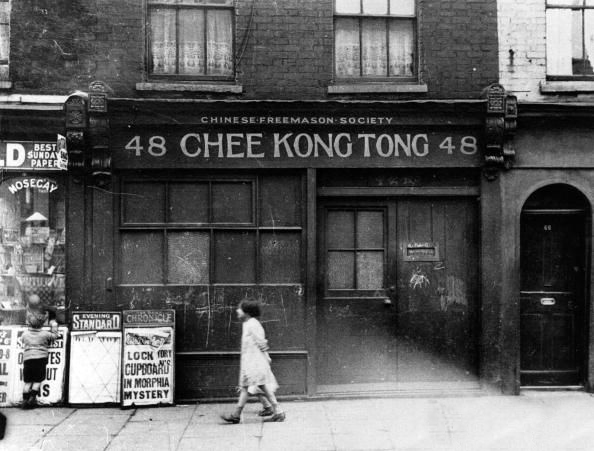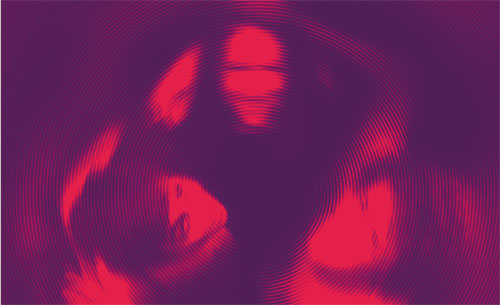-
Architecture
archive
art
Ballard
body
China
cinema
ecology
education
Europe
Ezra Pound
futurology
gothic
image
law
Literature
London
magic
memory
Modern
Modernism
museums
music
novel
performance
photography
poetry
politics
radical philosophy
science
science fiction
Sinclair
Situationism
sound art
Surrealism
technology
television
the avant-garde
The Future
Theory
thomson
time
Urban
visual culture
war
Posts tagged novel

Wednesday 1 December 2010, 4.15-5.45pm
Room 306, University of Westminster, 32-38 Wells Street, London W1T 3UW
Siobhan Chapman (University of Liverpool)
‘Implicated Meanings in Dorothy L. Sayers’s Gaudy Night: a Neo-Gricean Approach’
Update: Capitalist Epics Online
Tagged as novel, radical philosophy

David Cunningham’s essay ‘Capitalist Epics: Abstraction, Totality and the Theory of the Novel’, published in the September issue of Radical Philosophy, is now available online as a pdf on the journal’s Recent Highlights page of their website.
Download it here.
Update: David will be speaking on Philosophy, Capitalism and the Novel at the University of Dundee on Wednesday 24 November (4-6pm). He’ll also be in Glasgow on Thursday 25 giving a talk on the concept of modernism.
J.G. Ballard and New Brutalism
Tagged as Architecture, art, Ballard, novel

Wednesday 10th November, 1.15-2.30pm
Room 106, University of Westminster, 32-38 Wells Street, W1T 3UW
Joanne Murray (Birkbeck College, University of London)
“JG Ballard and New Brutalism”
Further details on the English Literature and Culture seminar series at Westminster here.
Science Fiction and Mass Observation
Tagged as Literature, Modernism, novel, science fiction

Wednesday 27th October, 1.15-2.30pm
Room 106, University of Westminster, 32-38 Wells Street, W1T 3UW
Nick Hubble (Brunel University)
‘Naomi Mitchison: From Intermodernism to Science Fiction (via Mass-Observation)’
From her 1920s novels, influenced by Lawrence but aimed at the audience of Wells, to her subsequent deployment of modernist techniques for political ends, Naomi Mitchison may be considered a key intermodern writer. Her relentless pursuit of the ‘just society’, free from gender-based and sexual repression, made her a controversial figure even in that controversial decade. And her close literary associates of that decade – including Auden, Aldous Huxley, Olaf Stapledon, Stevie Smith, Wyndham Lewis and Walter Greenwood – suggest different ways of thinking about literary networks and cultural history in general. She was also a friend and supporter of Tom Harrison and Mass-Observation, for whom she kept a wartime diary. Nick Hubble’s paper analyses this intermodern work and investigates how it relates to Memoirs of a Spacewoman (1962), a forerunner of the 1970s feminist utopian science fiction of writers such as Ursula Le Guin, Marge Piercy and Joanna Russ.
Rescheduled from last semester. Further details here.

Videos from the Royal Academy event Ballardian Architecture in May, including David Cunningham’s talk on Pop art, Brutalism and Ballard’s prose of space, have now been posted online.
You can watch the videos here.
Modernism lives
Tagged as art, Literature, Modernism, novel

Excellent guest blog by our own Michael Nath at Exclusively Independent about Gabriel Josipovici’s Whatever Happened to Modernism? and the media fuss that it’s generated:
“Professor Josipovici argues that the English novel has become caged in recent decades, and that its famous practitioners have been putting on a tame show, for all their swaggering. This has annoyed the literary reviewers and metropolitan columnists, who’re in the habit of making a fuss of certain big names, and don’t appreciate being told they’ve been cheering cows; but it happens to be true. The ranking writers and the prize-winners make it solely because the idea has caught on that ‘Modernism is dead’; the consequence of this is that contemporary writing can prowl about quite safely in its cage, or not prowl at all but just peep through its fingers.”
Read more here. And while you’re at it, check out David Cunningham’s review of Nicolas Bourriaud’s Altermodern exhibition in a recent issue of the Journal of Visual Culture. The defence of modernism begins here!

Another day another new book from an IMCC associate. We’re delighted to announce the publication of Monica Germana’s first book, Scottish Women’s Gothic and Fantastic Writing, from Edinburgh University Press.
The book considers four thematic areas of the supernatural – quests, dangerous women, doubles and ghosts – each explored in one of the four main chapters. Being the first critical work to bring together contemporary women’s writing and the Scottish fantasy tradition, the volume pioneers in-depth investigation of some previously neglected texts such as Ali Smith’s Hotel World; Alice Thompson’s Justine; Margaret Elphinstone’s longer fiction, as well as offering new readings of more popular texts including A.L. Kennedy’s So I am glad, Emma Tennant’s The Bad Sister and Two Women of London. Underlying the broad scope of this survey are the links – both explicit and implicit – established between the examined texts and the Scottish supernatural tradition.

The latest issue of Radical Philosophy is out now, including a new article by David Cunningham entitled ‘Capitalist Epics: Abstraction, Totality and the Theory of the Novel’. The issue also includes cracking pieces on James Ellroy and Rodolfo Kusch, as well as the latest analysis of Benjamin and Brecht’s now infamous chess game… Buy it in all good bookshops or subscribe here.
Route have posted a video up on their YouTube channel of the launch, back in December, for Michael Nath’s superb debut novel La Rochelle at Westminster. Watch it here. There’s also an interview with Michael on the Route website here.
There have already been excellent reviews for La Rochelle – described by Michael Wood as stylish, very funny, discreetly surprising’ – in both The Independent and the Big Issue. Buy the novel at: www.route-online.com

Thursday 11th March, 6pm
The Boardroom, University of Westminster, 309 Regent Street, W1B 2UW
Following a successful first event with urban visionary Iain Sinclair, in the second of a new series of talks at Westminster entitled 21st Century London, exploring the challenges and opportunities the city offers to the contemporary writer, Toby Litt will be speaking at Regent Street. Toby was winner of the 2009 Manchester Fiction Prize, and his many novels include Corpsing (2000), Ghost Story (2004) and Hospital (2007). Future speakers will be Diran Adebayo (March 18) and visiting research fellow at the Institute Rachel Lichtenstein (April 22).
For more information, please email Monica Germana at m.germana@westminster.ac.uk. Events are free of charge, but booking is essential: please email Sharon Sinclair at sinclas@wmin.ac.uk to book a place.
Wednesday 10th March, 1.15-2.30pm
Room 106, University of Westminster, 32-38 Wells Street, W1T 3UW
Andrew Smith (University of Glamorgan)
‘Haunted Houses and History: Locating the Anglo-American in Henry James’
Free to all.
The Portrait and the Novel
Tagged as Literature, novel, portrait, visual culture

Wednesday 24th February, 4.15pm
Room 106, University of Westminster, 32-38 Wells Street, W1T 3UW
Joe Bray (University of Sheffield)
‘Conceptual Metaphor and the Language of the Early Nineteenth-Century Portrait’
Hosted by our colleagues in Westminster’s English Language and Linguistics section, Joe Bray examines the meanings generated by frequent references, both literal and metaphorical, to the portrait in the early nineteenth-century novel. As critics have noted, the late eighteenth and early nineteenth-century novel drew on a well-developed cultural understanding of the portrait-novel connection, and this is particularly true of the novels analysed in this paper: Maria Edgeworth’s Belinda (1801) and Jane Austen’s Emma (1816). Each novel is extensively permeated by a metaphor of the countenance, or in some cases the whole body, as a painted portrait. The mapping involved would seem to create a ‘blended space’ which suggests that the emotions on the face can be easily read and understood, and thus that the body serves as a reliable index to ‘character’. Yet the implications of transparency and legibility that the metaphor of the painted countenance evokes are challenged in various ways in each novel.
Free to all.

Michael Nath & Anne Witchard Book Launch
Monday 14 December 2009
The Boardroom, University of Westminster, 309 Regent Street, 6pm onwards
Two members of the Institute are launching their new books at Westminster on the 14th December. Michael Nath will be reading from his first novel, La Rochelle, published by Route, while Anne Witchard will be introducing her marvellous monograph Thomas Burke’s Dark Chinoiserie: Limehouse Nights and the Queer Spell of Chinatown.

David Cunningham’s 2007 essay on Iain Sinclair, J.G. Ballard and the contemporary novel has been posted by Simon Sellars on his splendid website The Ballardian. Read it here.


The Institute for Modern and Contemporary Culture
University of Westminster Department of English, Linguistics and Cultural Studies
32-38 Wells Street, London W1T 3UW. United Kingdom.

